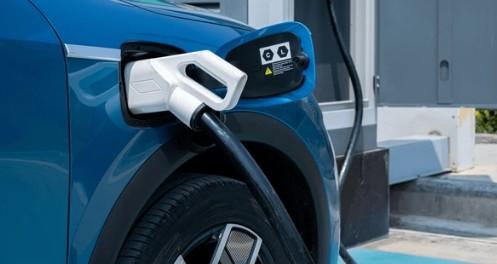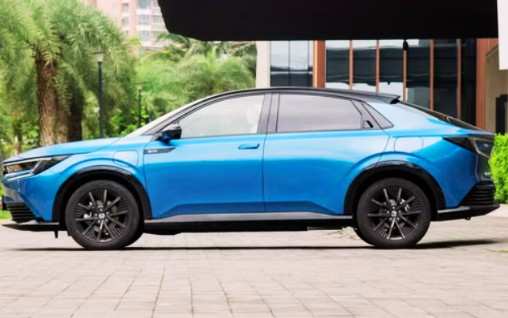The Telangana government has recently announced a new boost to its already existing and quite attractive EV policy meant to increase the usage of electric vehicles (EVs) in the region. This new strategy aims to create practical EVs and, therefore, put them to practical use for improved environmental situations, including Hyderabad.
Besides, commencing from the current fiscal, the revised policy provides financial sops in the form of exemption to EVs from road tax and registration fee till December 31, 2026, irrespective of the class of EVs purchased and registered in Telangana.
This progressive move not only serves the direct interest of individual buyers but also has the positive knock-on effect of getting businesses including the owners of vast numbers of commercial vehicles onto electric power.
Since the exemption has now been expanded to passenger vehicles only to include buses, auto rickshaws, and goods carriers, the policy holds the potential to lead to a manyfold increase in demand in the industry across sectors.
The question therefore is, can Telangana’s bold move attract other states in the country to take similar action? In this article, the major components of the EV policy will be outlined, and the question if this policy can spearhead the journey toward environmentally friendly transportation across Kenya will be addressed.
What is Telangana’s New EV Policy?
The state of Telangana has recently revised its thought process of the EV policy for promoting electric vehicles in the state.
Another spectacular feature of this new policy is that no EV, whether of two wheels, four wheels, or more, up to the possession of electric commercial vehicles, will be required to pay even a single rupee road tax or registration fee if the vehicle is registered within the state before December 31, 2026.

This exemption will lower the initial cost that potential EV consumers will have to incur thereby increasing the attractiveness of electric vehicles over traditional, internal combustion engine vehicles.
Also, stringency in the requirement of the number of eligible vehicles for these exemptions is not necessary anymore. This implies that an infinite number of EVs can access these incentive ev policies in india hence boosting their uptake.
Key Features of the Telangana EV Policy
The new India’s EV policy of telangana is a well-thought-out strategy that aims to promote the adoption of electric vehicles in multiple segments:
- 100% Exemption from Road Tax and Registration Fees: The policy also offers full exemption from payment of road tax and registration fees for those electric vehicles being bought in Telangana and registered across the country for a period up to December 31, 2026. For electric two-wheelers, passenger vehicles, light goods carriers, tractors, and electric buses.
- Focus on Commercial Vehicles: The policy is not restricted to owners of personal cars only. This also includes commercial electric vehicles such as taxis, three-wheelers, and buses owned by private companies as well as Telangana State Road Transport Corporation (TSRTC). This change is anticipated to cut the overall cost of operating electric public transport considerably.
- Incentives for Businesses: Other measures include tax incentives for electric fleets which are being used to encourage businesses in Telangana to adopt electricity-based vehicles. More specifically, this is especially useful to logistics firms and integrators of fleets.
- No Cap on Registrations: This new policy on the use of EVs has done away with a previous regulation that limited the number of such vehicles to 5,000 so as to be eligible for financial incentives. It is anticipated that this will improve the rate at which electric cars are taken in the state, thereby decreasing air pollution and carbon emissions.
- Support for Electric Buses: The state has also maintained zero road tax and registration fees for electric buses for the entire working life of the buses. This is a big plus for the mobilization of people through public means of transport, not forgetting the aspect of cost and availability of means of transport that are friendly to our natural environment.
How Will Telangana’s EV Policy Impact the Market?
An EV policy of this kind is predicted to overhaul the electric vehicle market in Telangana after implementing such a policy. As for many car consumers and business users, engineering road taxes and registration fees eradicated EVs’ initial out-of-pocket prices.
For instance, to encourage EV prospects, a prospective EV buyer will only have to pay for the price of the car outside the showrooms, insurance, roadside assistance in the event of a breakdown, and extra add-ons.
This is because stating numerous amounts of rupees within a single year plus the worth of crashed metals will definitely entice numerous consumers into considering EVs as a realistic and cheap option compared to traditional vehicles.
Besides, the policy outcome is expected to stimulate demand for electric vehicles, particularly in the passenger segment. Hyderabad, the capital of Telangana, is expected to witness increased uptake of EVs because of its aim to make the city pollution-free.
Since the policy covers even commercial vehicles, then, it will also serve as the needed boost to transform sustainable public and goods transport systems.
Can Telangana’s EV Policy Serve as a Model for Other States?
As for now, other states in India are struggling to address the same challenge on how to promote the use of electric vehicles. Although some states like Karnataka provide incentives to EV makers, the consumers do not reap the benefits of these incentives. This is a situation that makes many would-be consumers hesitate over the transition to electric mobility.
This specifically has been filled by telangana policy on electric vehicle which offers direct financial incentives to consumers. This gives it the potential to act as a reference state in India in terms of its case studies.
Regarding the mentioned states such as Maharashtra, Delhi, or Gujarat that have started implementing and advancing the promotional strategies for EVs, may be intrigued to follow the telangana ev policy as more oriented towards consumers.
Also, as more states inclusive of telangana state ev policy, the resultant impact across the country may well be a nudge towards increased EV ownership and usage, which in the end could propel India towards electric mobility.
The policy could spur the creation of required infrastructure good examples being EV charging stations and battery swap centers augmenting the general public’s accessibility to EVs.
Environmental and Economic Impacts of Telangana’s EV Policy
- Reduction in Pollution: The key aim of this EV policy is to decrease pollution levels in Hyderabad also grappling with some common issues affecting most large cities. Through the promotion of electric cars, the state is aiming greatly at reducing car emissions which are a major cause of pollution in towns.
- Boosting the EV Ecosystem: The Telangana EV policy is not only about giving money back to the buyers but also about building the entire ecosystem for electric vehicles in the state. Schemes for manufacturers and consumers: The state of Telangana e vehicle policy is promoting itself as an EV manufacturing, research, and development center. This will also generate employment and, indeed, enhance sustainable development.
- Long-Term Cost Savings: Based on elements of the policy highlighted above, it will boost the TCO of EVs and place them in a better position than traditional vehicles. Possibly, for the businesses, the economic benefits, such as reduced costs for fuels and less demand for damages on car maintenance, could be viewed in the long run.
- Job Creation: That way, as more and more EV Manufacturers and Service providers come into the state, the sector will become a major employer in Telangana. Positions worked for may include manufacturing, sales, services, and infrastructure development tasks.
Challenges and Expectations
Still, the Telangana EV policy is good enough to kick start, but with some critical success factors. The increased affordability of electric car models, the continuous charging network growth, and sharp increases in the public’s knowledge of the benefits of electric cars and charging will significantly contribute to the widespread use of electric vehicles. However, the state has to guarantee that the status of the policy, set for its provision, is seized and offered to all consumers in need.
Conclusion
The revised policy in Telangana is still way ahead in encouraging electric vehicles in the state and controlling pollution levels in Hyderabad. The state has assisted electric vehicles in influencing private and business consumers through the abolition of road tax and registration fee charges. For further details about electric vehicle please click on this link
The policy, which aims to increase the use of electric vehicles in Telangana, is hoped to contribute to the promotion of a greener economy in the state and the country at large, with the hope that other states will emulate it. For more on how state policies are influencing the growth of EVs in India, visit here India’s Electric Vehicle Policies.
Disclaimer
The information that you find at this site, is intended to enhance your knowledge only. All the information regarding the Telangana policy on EVs has been sourced from public records and can be adjusted. Always verify details with the relevant authorities regarding state ev policies and purchases.
FAQs
What is the goal of Telangana’s latest announced EV Policy?
The government of Telangana has announced its Electric Vehicle policy which focuses on providing encouragement for the people of Telangana to switch to EVs by providing exceptions from road tax and registration charges on electric vehicles.
Which models of the vehicle are eligible for incentives according to the Telangana EV policy?
The policy has been formulated for electric two-wheeler vehicles, electric four-wheeler private cars, electric four-wheeler taxis/auto-rickshaws, electric LCV light transport vehicles, and electric buses from FY 2022.
What period is the issuer of the tax exemptions valid?
The tax exemptions will apply to EVs registered in Telangana up to December 31, 2026, for all classes of EVs.









